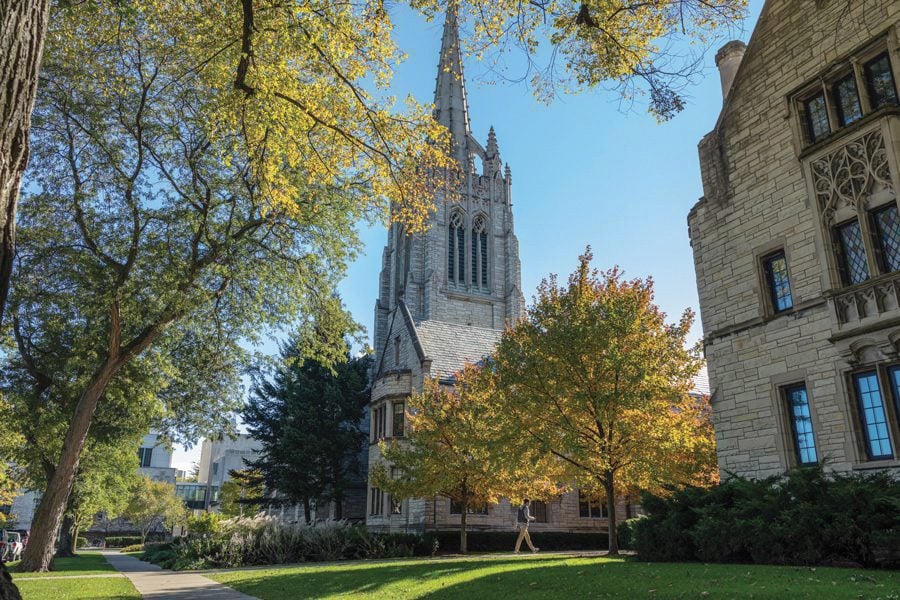Queer panelists discuss “reproducing” through art and transgender culture as “revolt” at QPGSA roundtable
Daily file photo by Andi Zhang
Seabury Hall. QPGSA’s first event of the academic year discussed the exclusion of traditional artistic industries while spotlighting the panelists’ creations.
November 13, 2020
As a queer creator, art is making copies of oneself in a world where reproduction is “gatekept,” artist, activist and curator Jamie Grace Alexander said at a Thursday roundtable discussion hosted by the Queer Pride Graduate Student Association.
“I almost see (art) as a reproductive justice issue,” Alexander said. “Queer people are gatekept from having their own children and thus have such intensely rich, creative lives where they are producing so much — and so much for everyone.”
Alexander, whose mural reading, “BLACK TRANS LIVES MATTER,” was displayed in Baltimore, said their graffiti art symbolizes their “Blackness, transness and femininity” in a more authentic way than it would appear in “dominant” media.
“Imagining Transgender Cultural Production as Revolt,” QPGSA’s first event of the academic year, dealt with how traditional artistic and cultural industries treat transgender, nonbinary and queer people of color as “non-normative,” barring them from cultural production.
In addition to Alexander, the roundtable also celebrated and highlighted the works of panelists Rahne Alexander, JB Brager, Julian Kevon Glover and Alexandria Webb, who each presented and explained their works.
QPGSA president and Ph.D. candidate Erique Zhang and Cassius Adair, visiting assistant professor at New York University, moderated the presentation and following Q&A.
Zhang said when organizing the event within the academic sphere of the University, it was important to invite community-based activists.
“(The panelists) are people who are working on the ground and who are actively involved in community organizing and activist movements,” Zhang said. “That was really important because I wanted to elevate the work of people who are engaged in their communities and are not just people who are going to sit there (and talk about) queer theory.”
Zhang added events like these create spaces where transgender and queer members of the group could support each other by forming networks, communities and services — something they hope to continue through programming and projects through the rest of the year.
The event was originally scheduled to be organized around a conference in Baltimore with a roundtable of Baltimore-based speakers. Because of the conference’s cancelation, QPGSA expanded, inviting panelists from communities other than big cities like New York and Chicago, Zhang said.
Glover, an assistant professor at Virginia Commonwealth University, presented a video of a choreographed poem on what they would have told their younger self, as well as a recording from their pop-up lecture titled “Heaux-liness,” which considers “life-affirming practice in the context of ongoing Black trans and non-binary annihilation.”
Glover said they feel an “overemphasis” on Black transgender people’s deaths and they are often relegated to speaking only about it, which they see as a barrier to serious discussions of Black trans identity. They added that this reminds them that their life is in peril, something they already know.
In contrast, Glover said it was “clear” in the roundtable that all the panelists were focused on producing art, instead of being defined by tragedy.
“We actually have a lot to say about living and a lot to teach other people who are willing to do the work on themselves to hear what the f–k it is that we’re saying,” Glover said, “and figure out how it might apply to their lives.”
Email: [email protected]
Twitter: @yunkyomoonk
Related Stories:
— Queertopia hosts LGBTQ research presentations
— Panel discusses coronavirus impact on marginalized communities


